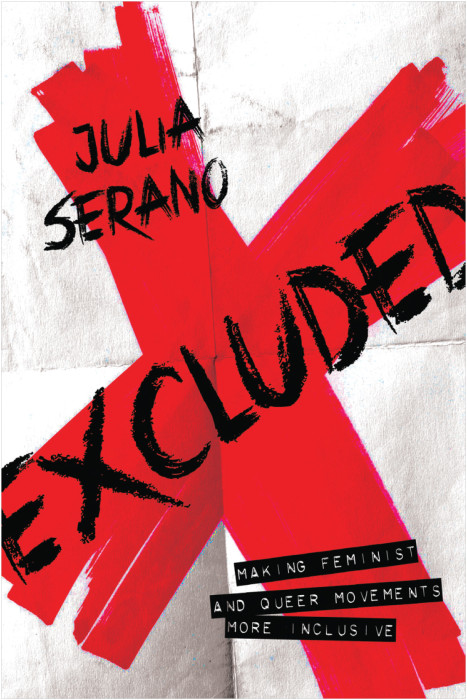I have an interview with Julia Serano up today at the Atlantic, in which we talk about her wonderful new book Excluded, which you should all go out and buy right now.
The interview got cut a little for space reasons, so with the Atlantic’s kind permission, I decided to post the excised bit over here.
You talk a bit about call out culture and where you see problems with it. So, thinking about the Hugo Schwyzer mess in particular, I wonder if you could talk a little about how you think activist communities can be inclusive and open to difference, while still being able to respond to or deal with folks who actually are undermining their goals or exploiting them.
The chapter in which I talk about call-out culture is the last chapter and it’s called “Balancing Acts.” And I talk about how activism needs to be a balancing act between the fact that we each have our own issues and concerns and agendas, and then there are other activists coming from other perspectives who have their own issues and concerns and agendas. And the best thing for us to do moving forward is to create intentionally intersectional spaces where we both talk and listen to one another, and where we give people the benefit of the doubt.
I think that can happen on a very conscious level, especially in smaller situations.
It becomes a real problem on the Internet. Just because, as you pointed out, there are bad actors, and people who are either going to be selfish and only talk about their own issues, or who are purposefully undermining other people. And you usually can’t police who shows up at your blog post, or who comments or who doesn’t.
As I was writing that chapter, I knew that it was a very complicated issue. But I do think it’s important to try to give people the benefit of the doubt. I know for myself, that I grew up in straight mainstream culture that didn’t really have a feminist analysis and that was very anti-queer. And I learned what I’ve learned as an activist slowly but surely, and I went through various stages of probably being messed up in my perspective, just because I was new. And I think that we need a way to give people who are new to activism a chance to learn, and to be given the benefit of the doubt if they say something that other people think is problematic, as long as they’re willing to listen to others and learn moving forward.
The other reason that I bring it up is that a lot of exclusion that happens within feminist and queer movement comes from having some minority member of the group being called out under the assumption that who they are is inherently oppressive. So there’s a long history of trans women in feminist and queer spaces being accused of having transitioned in order to have heterosexual privilege, or being accused of upholding heteronormative ideas of what women are and so on. So that was another concern of mine.

